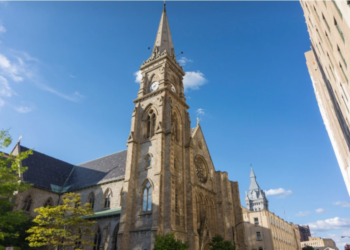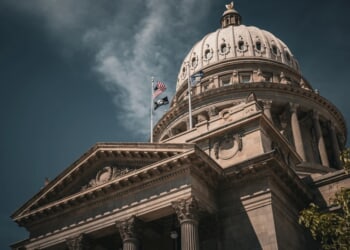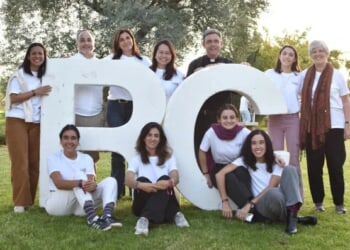Lima Newsroom, Apr 10, 2025 /
06:00 am
In one of the most poverty-stricken areas of Lima, Peru, where hunger and hopelessness have long prevailed, a man who once rejected the Church now leads a quiet revolution of solidarity.
After 24 years away from the faith, Fabrizio Caciano transformed his own conversion into “Emergency Missions,” a Catholic nongovernmental organization (NGO) that not only feeds people in hospitals and on the hills but also builds a future by bringing education to those forgotten by society.
His story is a living testimony of how faith in action can transform lives in a country where more than 17 million Peruvians face food insecurity.
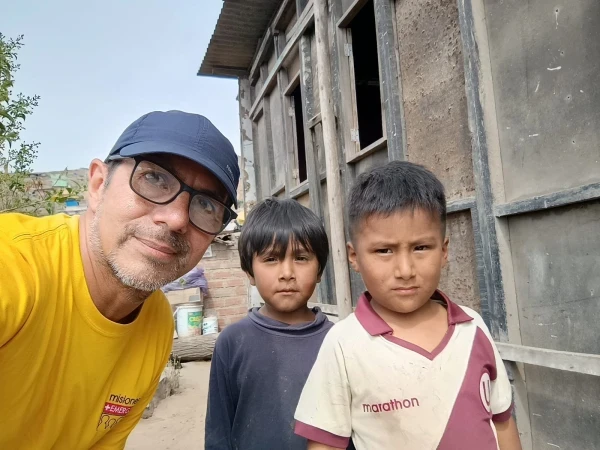
Emergency Missions, formed by volunteers from the Santa María Reina (Holy Mary Queen) Parish in the Miraflores district of Lima, has been recognized three times with the Metropolitan Volunteer Award in the religious organizations category.
Caciano, the leader of the initiative, told ACI Prensa, CNA’s Spanish-language news partner, that the foundation of the mission is deeply Catholic. “We transmit the faith we carry within us, and that also transforms those we serve,” he said.
He also noted that he follows this maxim in life: “What is from God is from God. Trust, let go, wait. Let the Lord surprise you,” remembering that true transformation begins with surrender and faith in divine providence.
A path of conversion and service
Caciano, 55, began leading the initiative in 2016 after a long process of personal transformation. Raised in a practicing Catholic family, he attended Mass regularly until the age of 18. However, the sudden death of his mother and the loss of his best friend in 1989 led him to distance himself from the faith and reject the Church for 24 years.
While studying business administration and specializing in marketing, he accidentally discovered his calling to serve. Through his passion for candlemaking, he began working with the NGO Mundo Libre (“A Free World”), teaching homeless children. His commitment led him to become the director of the Street Educators program, working with child drug users in the worst-off areas of Lima.
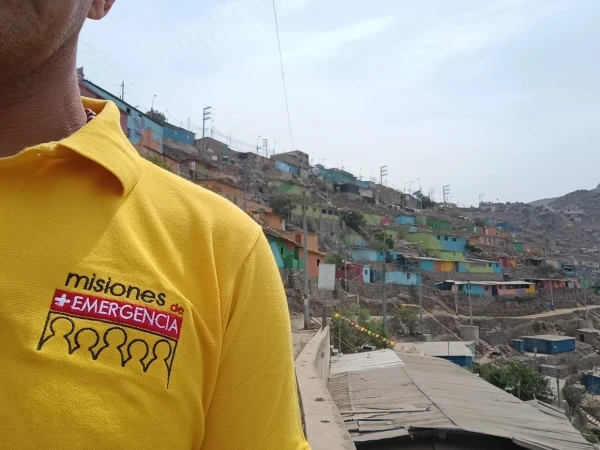
‘What kind of Church do you want to be?’
His return to the faith was unexpected and occurred in 2013 after a conversation with Marianist priest Víctor Müller. During that conversation, Caciano tried to challenge the priest with controversial topics about the Church.
However, Müller’s response disconcerted him: “You may be right, but you cannot deny that, at this moment, in the mountains of Peru, at 4,000 meters [13,125 feet] above sea level, there is someone carrying a message of solidarity, faith, and hope to those who need it most.”
The priest then asked him a question that would deeply mark him: “What kind of Church do you want to be?” These words were engraved in his heart and began his evangelizing mission.
Caciano admitted that, from that moment on, he began attending Mass and, shortly after, became involved in perpetual Eucharistic adoration. He chose a difficult schedule because, for him, sacrifice is a fundamental part of growth. “Calm waters have never made good sailors,” he told ACI Prensa.
(Story continues below)
Subscribe to our daily newsletter
Emergency Doors: First humanitarian aid project
Since 2016, every week, a group of young people and adults has met in the evenings in the halls of Santa María Reina Parish to bring love and food to patients and families in seven hospitals in Lima, alleviating their needs with solidarity and closeness.
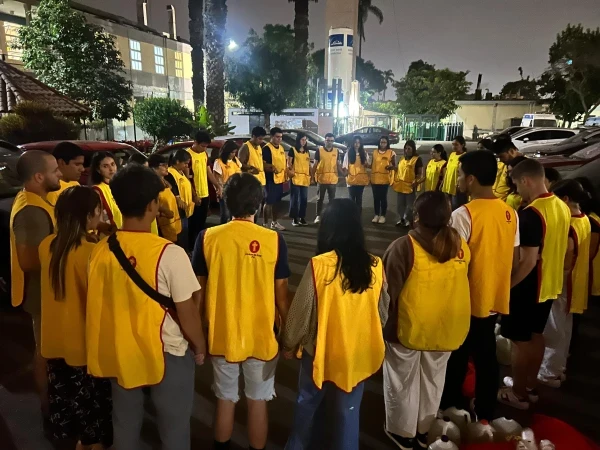
“The idea is to provide them with a snack and, above all, company, emotional support, and help. These are people who face uncertainty, often without having eaten or without money to return home. We want to be there for those who wait, anguished,” Caciano said.
This is how the Emergency Doors project, which has delivered more than 400,000 snacks to hospitals to date and currently distributes 1,100 loaves of bread weekly, was born.
“It’s not just about giving bread but about looking into the eyes of those who are suffering, accompanying them in their pain,” Caciano said.
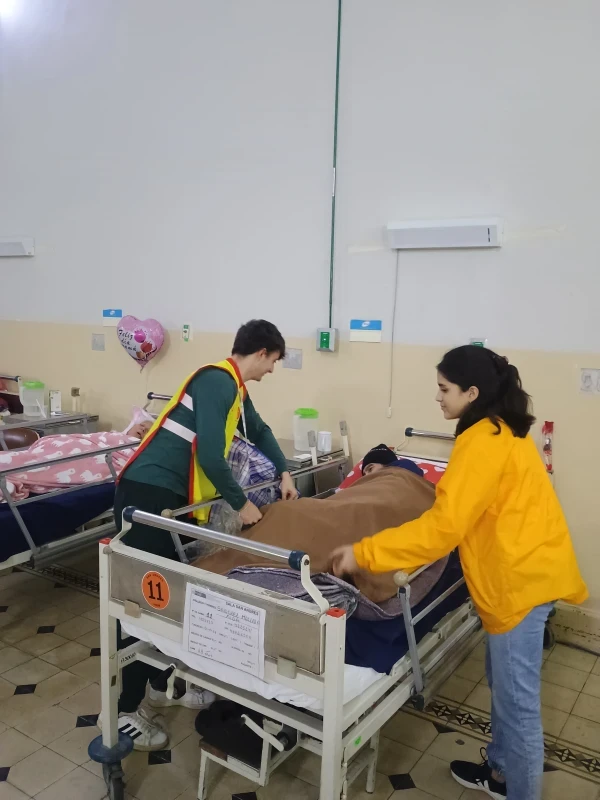
In addition to this project, the Emergency Streets initiative was started during the COVID-19 pandemic. “We are going to prepare food to take to people in need, to those who live on the streets, sleep on the streets, and spend their nights outdoors during the winter,” he commented.
Some families from Santa María Reina Parish are participating in the project, which began cooking food to distribute in downtown Lima. Currently, approximately 1,500 meals are provided monthly.
The U.N. Food and Agricultural Organization’s 2024 report indicates that 51.7% of Peruvians, approximately 17.6 million people, face moderate or severe food insecurity. This makes Peru the country with the highest rate of food insecurity in South America.
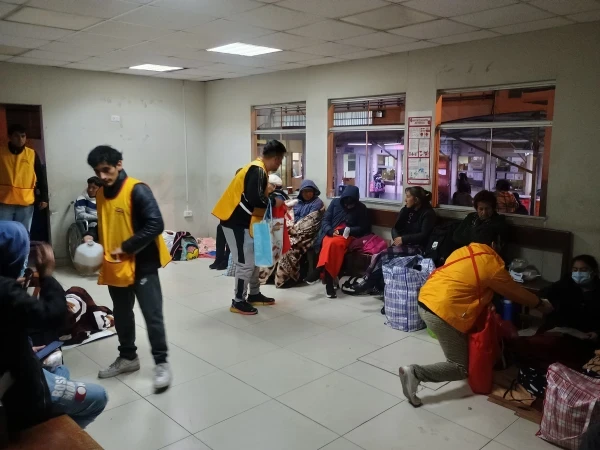
Emergency Pots: Fighting hunger
Faced with this reality, initiatives like Emergency Soup Kitchens have been key to bringing aid to those most in need. During the pandemic, Caciano and his team went to the town of Villa María del Triunfo and, seeing dozens of families organizing communal soup kitchens due to a lack of food, decided to take action, supplying them with essential products.
“For a year and a half, we gave them breakfast supplies,” Caciano said. “We saw children who hadn’t eaten all day, desperate mothers looking for something for their children. We couldn’t just stand idly by.”
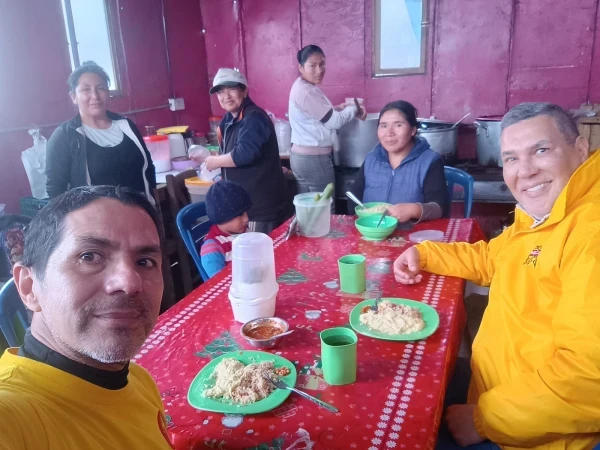
This charitable initiative grew rapidly and continues to support hundreds of vulnerable families today.
Currently, thanks to an agreement with the Plaza Vea supermarket chain and in partnership with the prison ministry at the Lurigancho Penitentiary, they manage to collect 3 tons of food per month to share with the soup kitchens in the San Juan de Lurigancho district, one of the poorest areas of Lima.
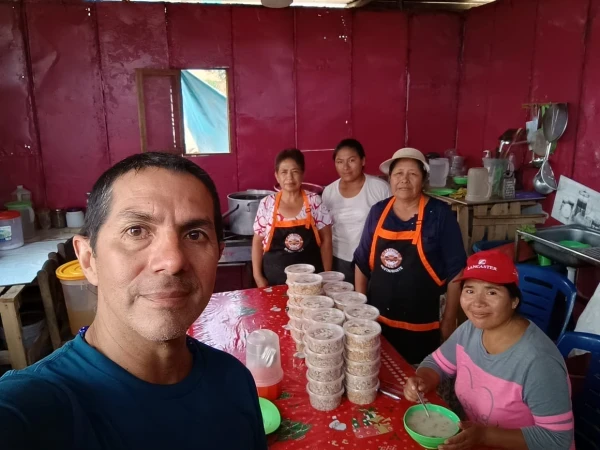
Emergency Classrooms: Education for the neediest
Over time, Emergency Missions identified another urgent problem: the lack of access to education. During the pandemic, many children didn’t have internet access or the tools to continue studying.
The solution emerged unexpectedly when a friend of Caciano’s offered him a device that provided internet access for 10 people. Thus, the Emergency Classrooms project was born.
“We’ve seen mothers crying with joy because their children can study now. One mom told us, ‘My son wants to be an engineer, but he didn’t have the means to study. Now he has the opportunity to do so,’” Caciano related.
In partnership with Loyalty Bonus, the project has equipped 25 meeting places in South Lima, each with free internet access for one year, tablets, and printers.
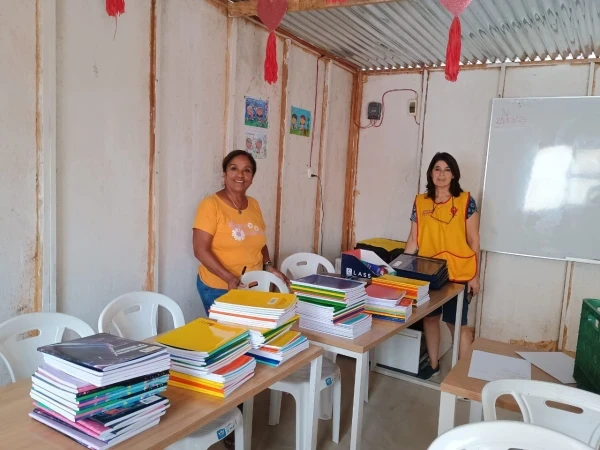
In addition, they have set up prefabricated modules in the hilltops of southern Lima, allowing teachers to hold in-person classes with official status. Thanks to this initiative, in 2022 they were able to integrate 100 mothers from the soup kitchens into the school system within their own communities.
The impact has continued to grow. In 2024, 200 mothers returned to and completed their studies, and last year, 60 women graduated from high school with an official state certification. Currently, Emergency Classrooms has seven outlying centers where people can sign up for classes in different areas of Lima, facilitating access to education for those most in need.
Message of hope and faith
Regarding spreading their work, Caciano noted that the projects tend to be discreet in publicizing their work due to their Catholic identity, although he acknowledged the importance of making themselves known.
“We do much more than we show the world, while many publicize more than they actually do. We are present, quietly working. Humility is part of the work, but it is also necessary to make yourself known, because if people don’t know about you, they can’t help,” he said.
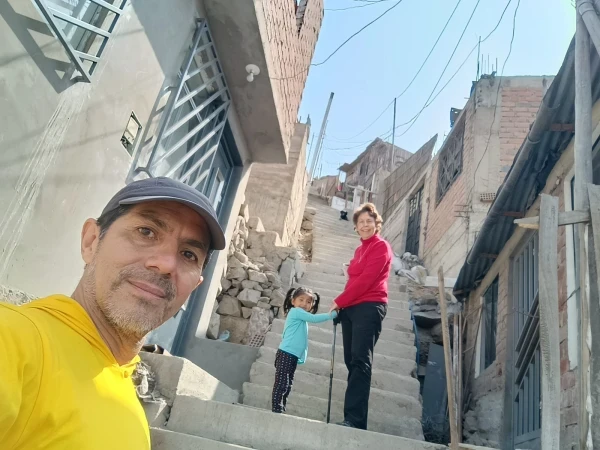
For this reason, he invited those who wish to support the outreach to experience it in person. “When someone here says, ‘How can I support you?’ I say, ‘Come. Come, join me on the street. Come, join us at the hospital.’ And along the way, I’ll tell you what’s going on, because it’s a lot,” he commented.
Finally, reflecting on the journey, he reaffirmed that this work has been a calling from God that has grown into a life mission for many. “We have changed lives, not only with what we give but with what we share: hope, companionship, and faith. And that transforms hearts,” he concluded.
To learn more about Emergency Missions, visit this link: misionesdeemergencia.org.
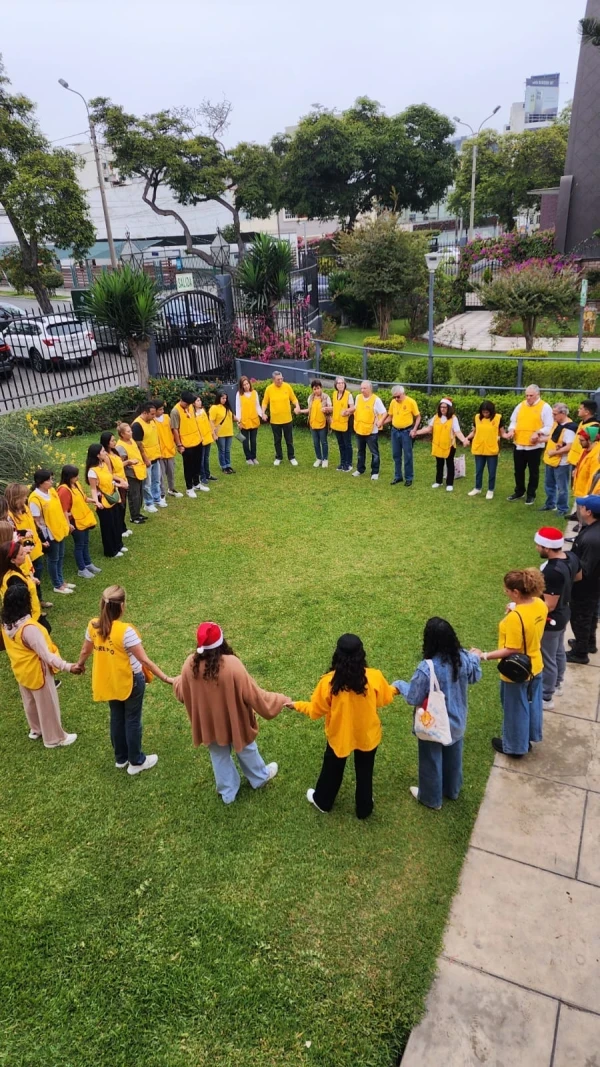
This story was first published by ACI Prensa, CNA’s Spanish-language news partner. It has been translated and adapted by CNA.




